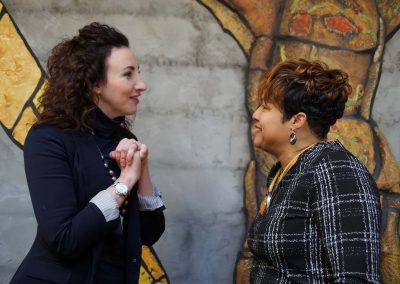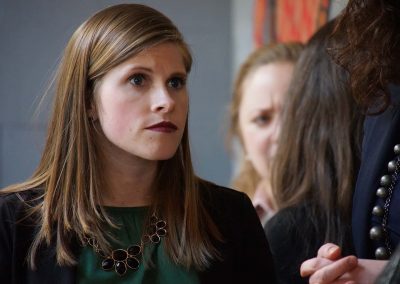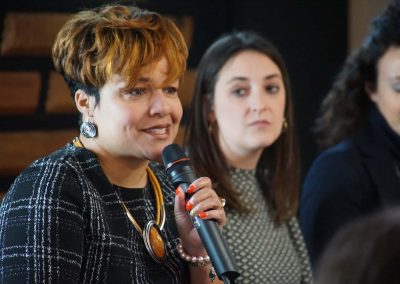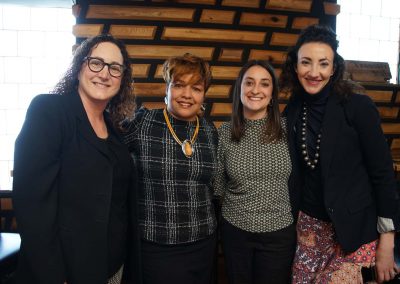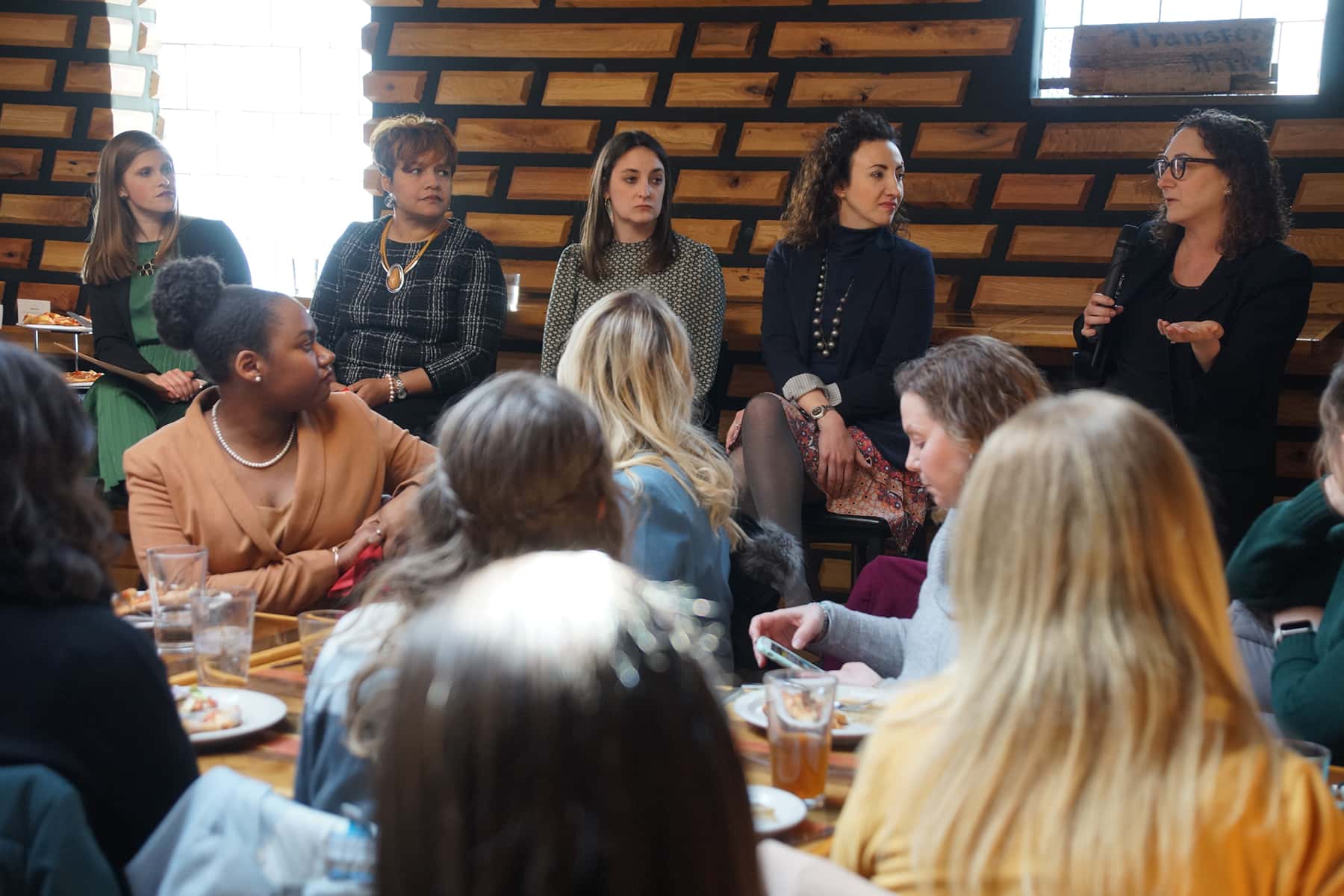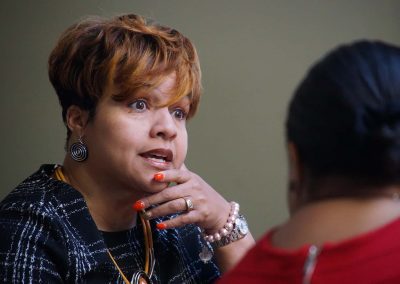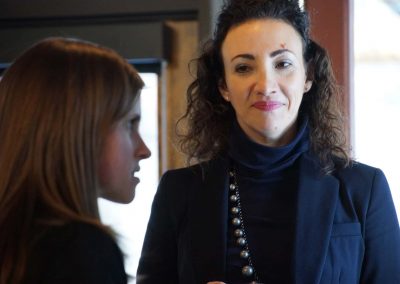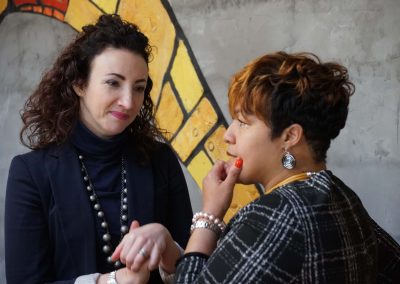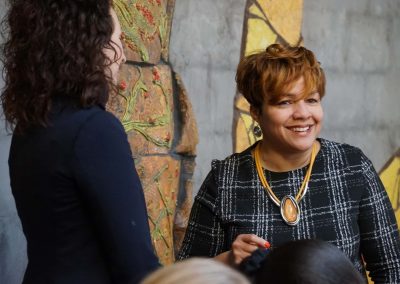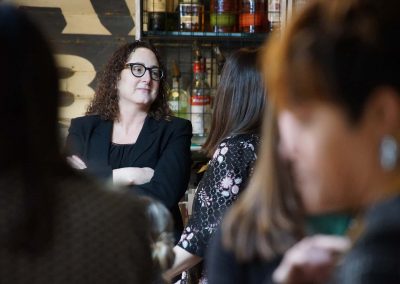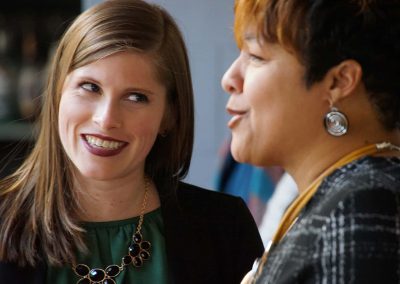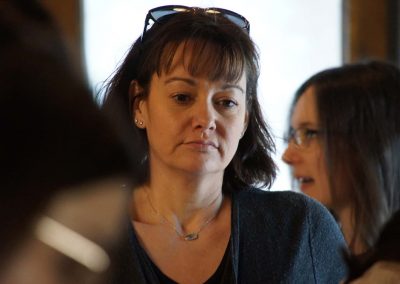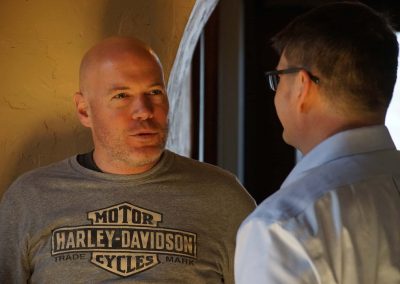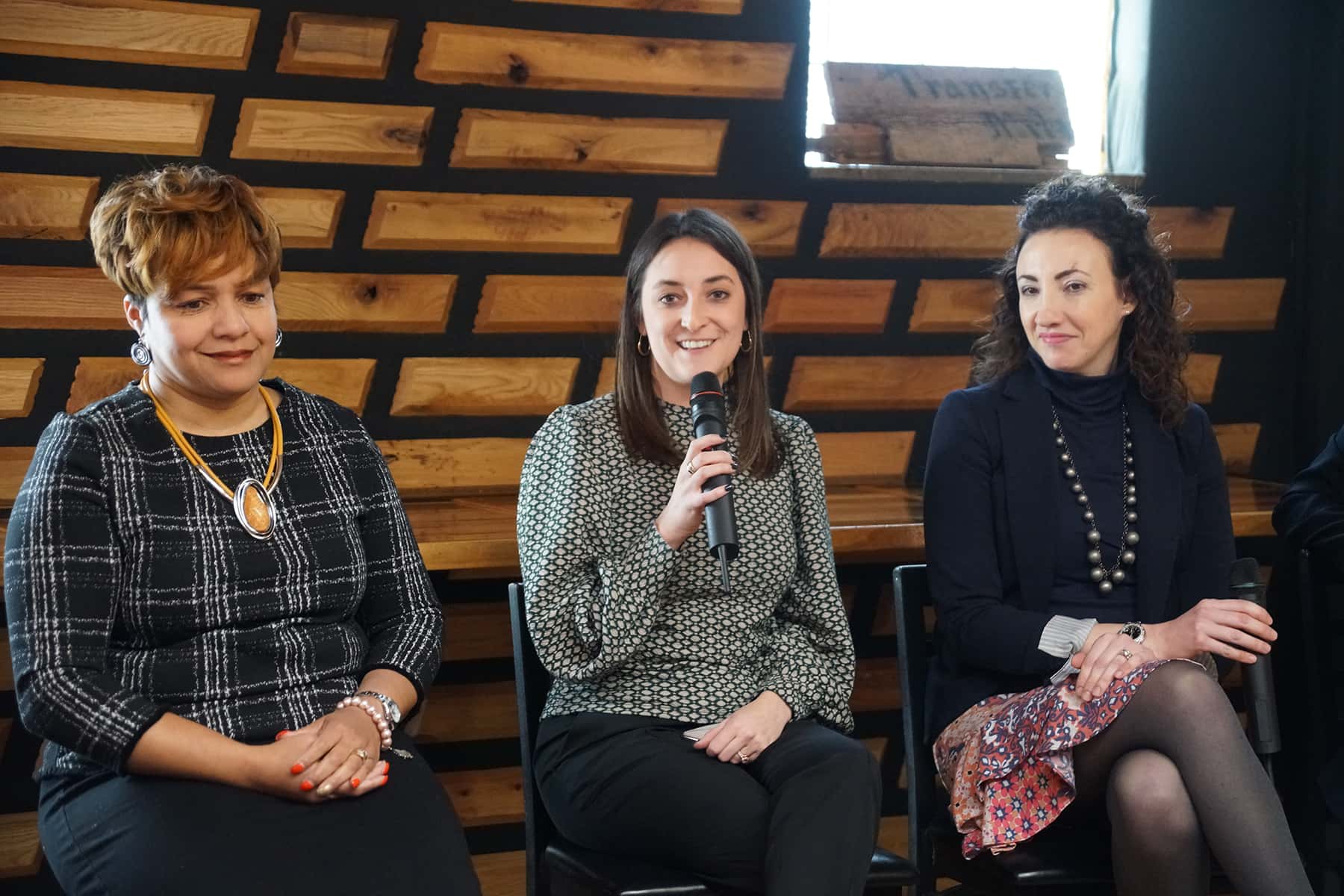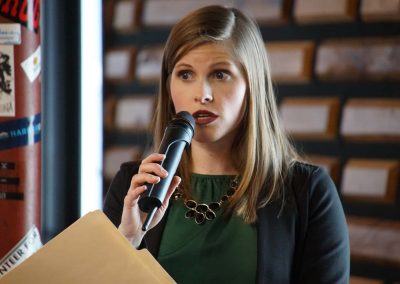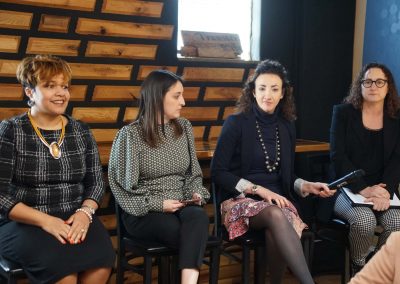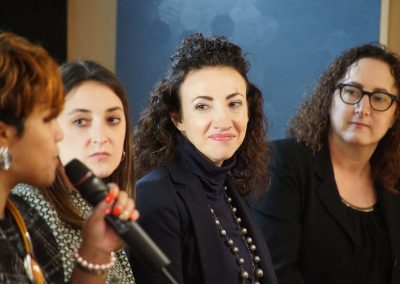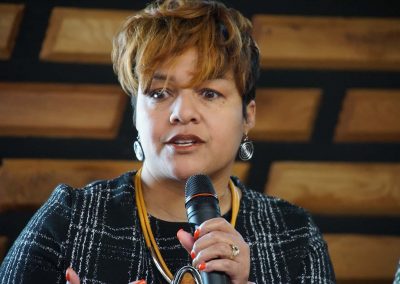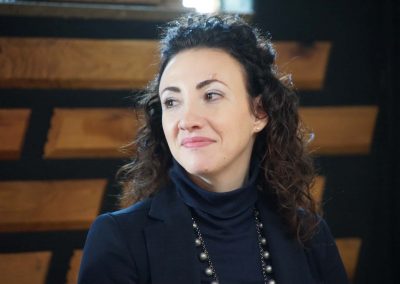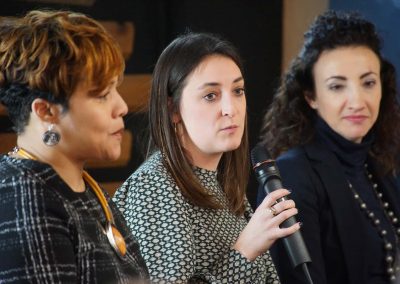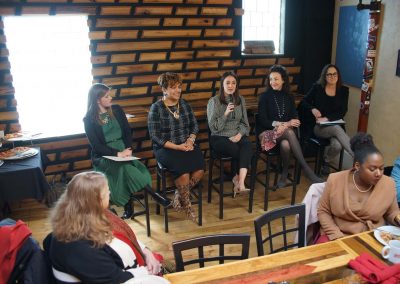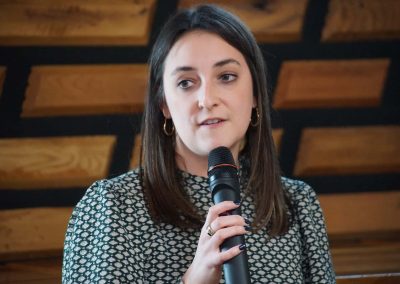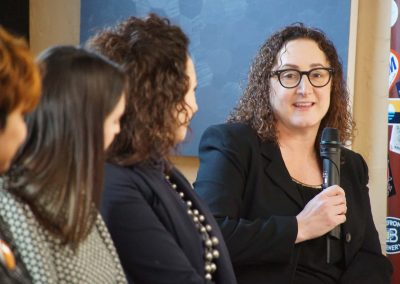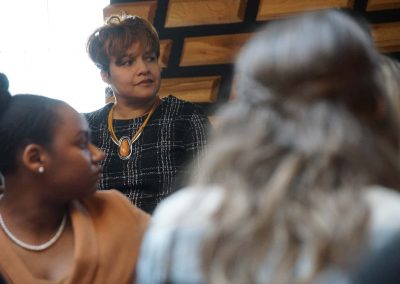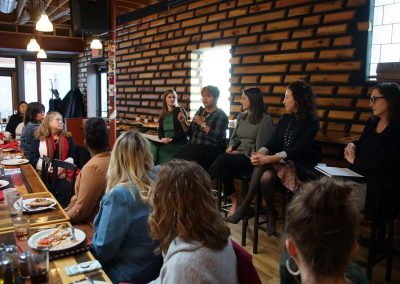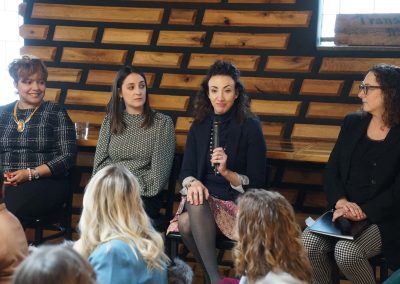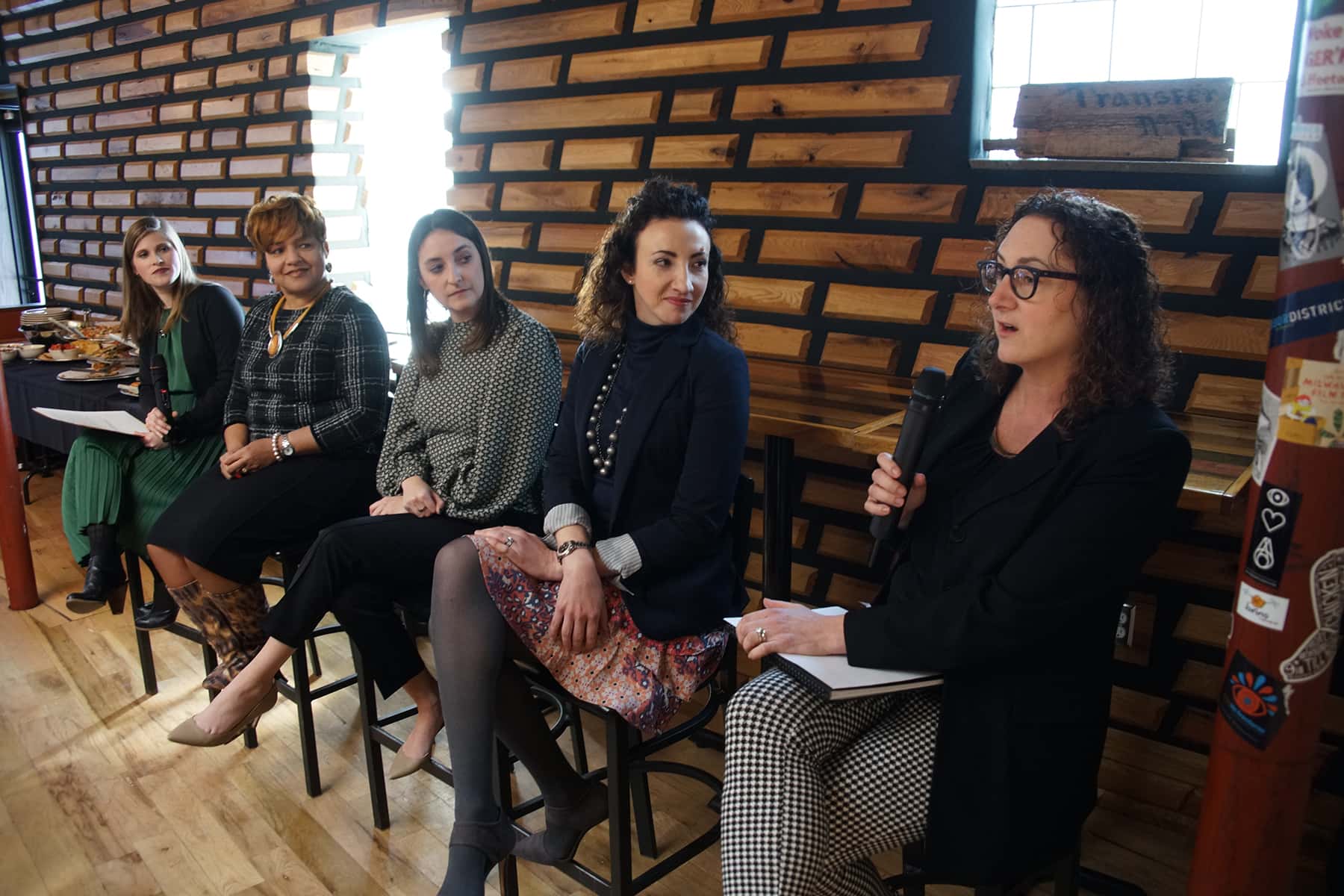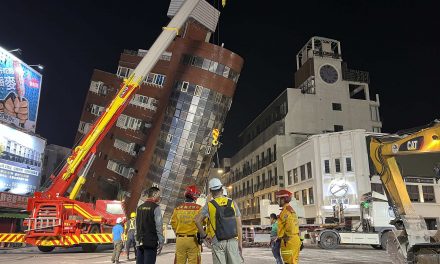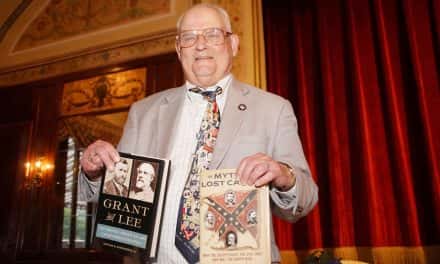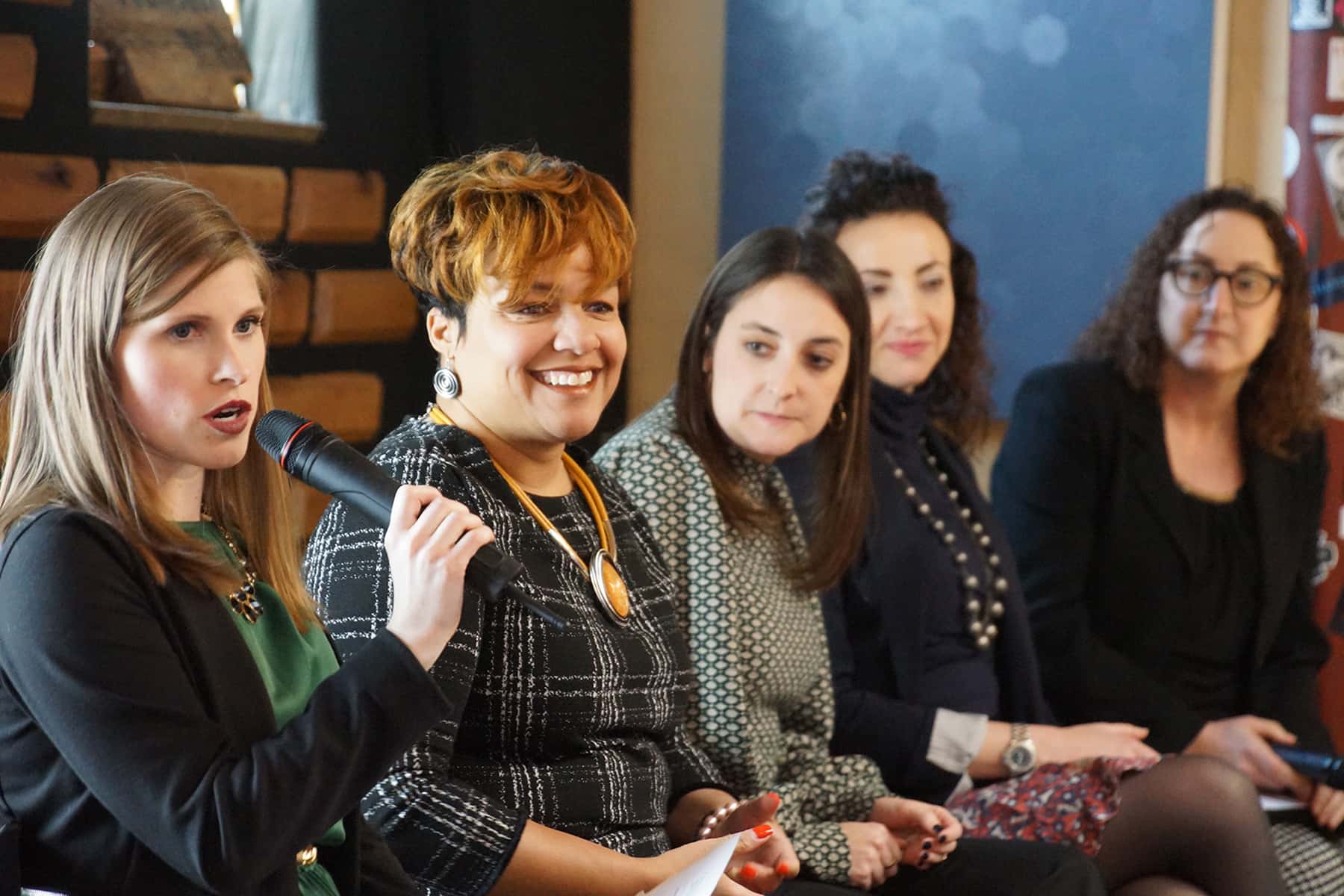
The Public Relations Society of America (PRSA) Southeastern Wisconsin Chapter hosted a panel of female leaders from Milwaukee on February 19 at Transfer Pizzeria Café, to share their insight, experience, and the efforts it took for them to get a “seat at the table” as communications professionals.
A group of nearly one hundred individuals attended the speaking event. Katharine Foley of PRSA moderated the panel that included Tammy Belton-Davis of Athena Communications, Kim Schultz of the Hispanic Professionals of Greater Milwaukee (HPGM), Sarah Maio of the Wisconsin Center District, and Jodie Tabak with the City of Milwaukee.
“I did not set out to be an entrepreneur. Owning a business comes with a significant amount of work, but I come from a family of entrepreneurs,” said Belton-Davis. “The real reason that I do this work is not because I love it. I do love it. I do love communications. I do love marketing. But, I love my city. So because we have truly been impacted by what is happening locally in Milwaukee, our firm made a commitment three years ago that we were calling for more transformational projects. We do this work because the end game is really about transformation with a positive impact in this city.”
As newsrooms across the country continue to shrink and the communications landscape evolves, Public Relations (PR) has become a fast growing profession, especially among women. Based on several reports, including the Bureau of Labor Statistics, women hold anywhere from 61% to 85% of all PR jobs, and 59% of all PR managers are female. However, according to the 2014 World PR Report, only 30% of all global PR agencies are run by women.
“On the issue of credibility and being loyal to the truth, it really decreases your workload if you don’t have to clean up a second mess,” said Tabak. “Being proactive and knowing your business as well as you can is very important. I spend a lot of time getting to know different city departments and different organizations that we work with, so I can keep my finger on the pulse of what’s going on. That way I can be proactive, and move from a communications professional to a senior advisor. I’m working on things in advance and trying to craft an overall agenda, as opposed to just what the communications needs would be.”
Even in an industry dominated by female voices, the group faces the same challenges that existed 50 years ago – a professional wage gap and very few C-suite and management positions. Fewer than 5 percent of Fortune 500 CEOs are women.
The Q&A discussion with the panelists focused on a range of subjects specific to the public relations field, but also universal struggles that women in the workforce face as they aim for leadership roles.
“Leadership is about influence,” said Belton-Davis. “It is not about a title, it is not about how many people you manage. It is the ability to influence behavior, and influence change. All of us have the opportunity to be at a C-Suite level if we choose. But it requires a great deal of self-confidence. It requires advocacy, it requires pushing hard, and it requires you to have allies.”
Belton-Davis talked about how women often do themselves a disservice by assuming that men could not be allies. While she had been fortunate to have a great deal of female support, she gave examples of men who had encouraged her and championed her skills, which opened many opportunities where she could demonstrate her determination for excellence.
“Sometimes people just want you to listen to them. And if you take the time to do that, and don’t rush them through what they’re trying to tell you, then it’ll create space for you to give them feedback,” said Schultz. “And then maybe the next time you interact with them, they’ll be more receptive to what you have to say. Letting people get their message across can create a more productive relationship down the line.”
While feedback is important for professional growth, it is also something that cannot be negotiated.
“Feedback is not negotiable. The way someone feels is not up to you to debate,” said Maio. “It doesn’t mean that they’re right, it doesn’t mean that they’re wrong. But it does mean that the way you respond to it has to be tempered. That takes an ability to communicate, which is the purpose of our field. We can put ourselves in their shoes, and maybe not empathize or maybe not sympathize, but at least be willing to expose yourself to the fact that they could be right – even if it hurts our feelings. The easiest way for you to not build trust with someone is to meet feedback with defensiveness.”
PRSA Southeastern Wisconsin Chapter is comprised of three hundred members that represent public relations and communications professionals, from recent college graduates to mid-level professionals, to agency, corporate, and nonprofit leaders across the region. The organization advocates for greater understanding and adoption of public relations services, and acts as one of the industry’s leading voices.

